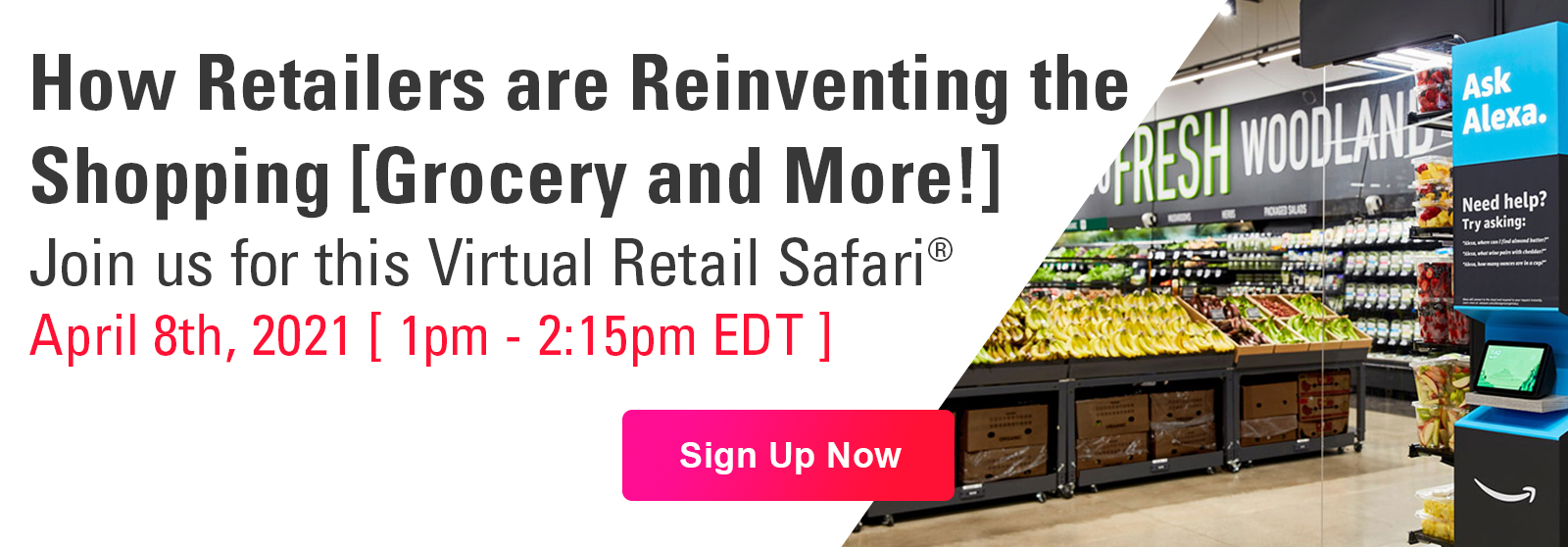Wendy Liebmann, WSL CEO, Interviews Kroger Health President, Colleen Lindholz, on Kroger’s Health Strategy.
When the supermarket giant Kroger decided to embark on its “Food as Medicine” strategy, it did not overthink it. In fact, its companywide approach is disarmingly simple, explains Kroger Health President Colleen Lindholz: It answers three basic questions with affordable solutions, then measures the results on each step of the journey. Kroger’s goal: to cut $58 billion in healthcare costs by 2025 by reducing incidence of diabetes, obesity and food insecurity.
Kroger Co. Would Rather Sell Food Than Prescriptions
This is a key philosophy behind the “Food as Medicine” strategy, now integrated into every aspect of Kroger’s 2,800 stores, explains Colleen Lindholz, president of Kroger Health, in her interview with WSL: “How Kroger is Helping Americans Live Healthier Lives.”
“We’re out to change the way healthcare is delivered in the country,” Colleen told WSL “While we are a large grocer that has pharmacies, we’d rather write prescriptions for food.”
Kroger makes “Food as Medicine” attainable by making healthier foods easier to identify and acquire online or in-store. It’s an option more shoppers are embracing with both arms, according to our How America Shops® research:
- 40% of shoppers told us that while it costs more to live healthy, it’s better than spending money on doctor bills.
- Two-fifths of shoppers are now focusing more on nutrition.
- Shoppers expect to acquire healthy goods in store and online.
How do these preferences play out at Kroger Health? Following are some edited takeaways from WSL CEO Wendy Liembann’s webcast with Colleen Lindholz.
Kroger Health’s Wellness Strategy: More than Food
“It’s not just about the food you put into your mouth; it’s about overall wellness, fitness, behavior, spiritual health, that type of thing. It’s really the mind, body, soul that we’re going for.”
As a former Kroger pharmacist, Colleen realized early on that she needed to help her customers more holistically – to educate them on how the foods they eat will define their health. This meant bringing the healthcare side of the business to the food side. To do this, Kroger set out to answer three of the most persistent shopper questions: Is this healthy? Is this healthy for me? How can I stay healthy?
The resulting “Food as Medicine” strategy has one overarching goal: To cut the cost of healthcare by $58 billion by 2025. It plans to do this by helping to reduce the number of people with diabetes (by 18 million), obesity (20 million) and food insecurity (8 million), while adding 15,000 healthier products to its shelves.
Living Healthy Requires Ease, as Well
“Our purpose at Kroger is to feed the human spirit,” Colleen said. “We are able to help make their lives easier and better. (We’re) redefining the grocery experience in the work that our dieticians are doing and our nutrition techs are doing to improve that experience – within the four walls and well beyond.”
Kroger’s nutrition scoring system app, OptUP, helps customers answer “is this healthy for me?” Kroger is working with its CPG partners, as well – encouraging them to develop products with higher nutrition scores that are affordable.
“It simplifies it for the customer. And then at the same time, it offers better-for-you options,” she said. “We want to change the way America eats.”
Kroger may be able to effect that change at a younger age. Some schools and cafeterias have expressed interest in learning about the OptUP system, to teach kids about good nutrition early on.
Using Digital Tools to Perform Healthier Functions
“We’re trying to build the technology and infrastructure to be able to put the patient at the center and communicate.”
With its customers’ permission, Kroger uses the insights from healthcare and grocery purchase data to better target those shoppers who want to receive better-for-you options, education and guidance. Kroger also offers its own telehealth consultations with nurses and dieticians who advise customers on making better nutrition choices, whether they are training for a marathon or undergoing cancer treatment.
“They may have issues with certain chronic diseases like diabetes or heart disease, and they give us permission to help them on the grocery side,” Colleen said. “That’s where the true magic happens.”
Kroger also is building a platform on its pharmacy and clinical side of the business that can communicate directly to primary care physicians, hospitals and patients. Kroger aspires to one day add the data from its OptUP app to medical records, so physicians can better understand their patients’ day-to-day lives.
“We’re trying really hard to be the first to embed a nutrition score back into the electronic medical record,” she explained.
Retail’s Power to Touch and Transform
Kroger Health’s “Food as Medicine” approach seeks to resolve a greater national issue that will lead to better business in the long term. It is shifting its focus from the products on its shelves and the channels through which they are delivered (in-store or online) to the day-to-day conversations shoppers have every day – whether there is a pandemic or not.
To hear more of Wendy’s conversation with Colleen Lindholz, you can tune in here.
WSL delivers more examples of innovation and wellness in grocery during its Virtual Retail Safari® Open Call Event, click to learn more and attend:
Our Retail Safari® Open Call is free to our annual How America Shops® clients, get your free tickets here.



